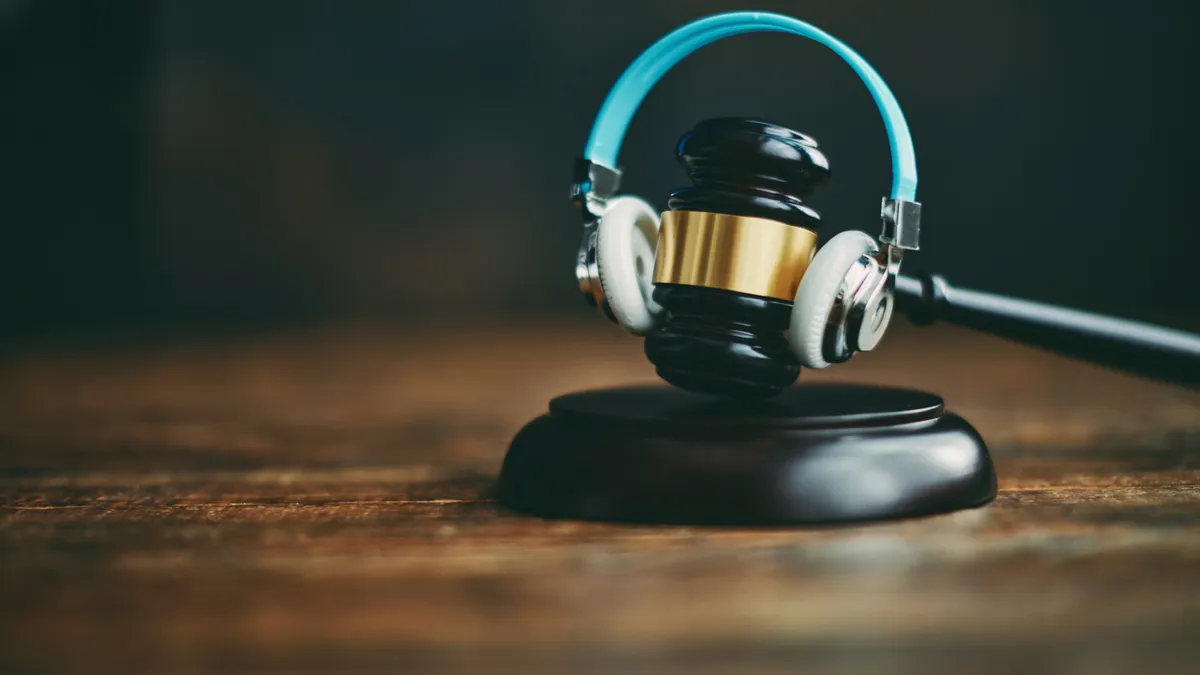Dive Brief:
- The Supreme Court is asking the U.S. Solicitor General to weigh in on a copyright infringement case pitting large music labels against internet service providers, with potentially far-reaching effects on how internet service is delivered nationwide. Sony Music and Cox Communications have each asked the court to hear the issue, with the court’s request Monday suggesting the justices may do so.
- The case tests the nature of ISPs’ liability for actions by their customers, with circuit courts split on whether an ISP must profit directly from the customer’s infringement to be held vicariously liable or whether the ISP’s subscription fee constitutes sufficient commercial gain for such liability.
- Sony and other music labels sued Cox in 2018 arguing that the internet provider should be held responsible for copyright infringement by its customers in cases where Cox had not terminated their service despite notice from Sony that piracy had occurred.
Dive Insight:
Cox, in its petition to the court for a hearing, said the case carries “immense” public policy implications, with justices being asked to determine who bears responsibility for online copyright infringement. Cox provides internet access to 6.5 million customers in 18 states nationwide.
Sony and other large recording companies in the case, Sony Music Entertainment vs. Cox Communications, argue that the ISP is liable for copyright infringement damages because it did not terminate access to accounts that the labels had flagged and notified Cox as engaging in music piracy.
In February, the Fourth Circuit ruled that Cox was not vicariously liable for its subscribers’ infringement because it did not profit from that infringement. The appeals court agreed with a 2019 Virginia jury finding Cox guilty of willful contributory infringement. The court vacated the jury’s $1 billion award and remanded the case to district court for a new trial on damages.
Atlanta-based Cox has said the Fourth Circuit’s ruling, if it stands, would lead to draconian policing measures by ISPs and could force thousands of businesses to stop offering free internet access to their customers.
“This would result in a fundamental change to how ISPs must manage their networks as many may feel that the only way to avoid liability is to monitor the activity of their subscribers to ensure no one is engaging in potentially unlawful conduct,” the company said in an August press release accompanying its petition for a hearing at the Supreme Court. “This is not how the internet should work.”
In its petition for certiorari, which adopts a far narrower scope of the issues than Cox’s legal approach, Sony also argues that the Fourth Circuit erred.
“The Fourth Circuit’s requirement that the defendant profit directly from the act of infringement itself — as opposed to profiting from the operation in which infringement occurs — stands opposite to the rest of the field,” the company wrote. “Every other circuit to have considered the question has employed a different approach to the profit requirement, asking instead whether the defendant profits from the operation in which infringement occurs.”
In its petition, Cox said the music industry has filed 10 lawsuits against large ISPs, “with no signs of relent, while other plaintiffs have adapted the theory to target all sorts of other service providers.
“The question of who is responsible for online copyright infringement carries immense public implications, affecting the interests of rights owners, businesses, and users on a pervasive scale.”











